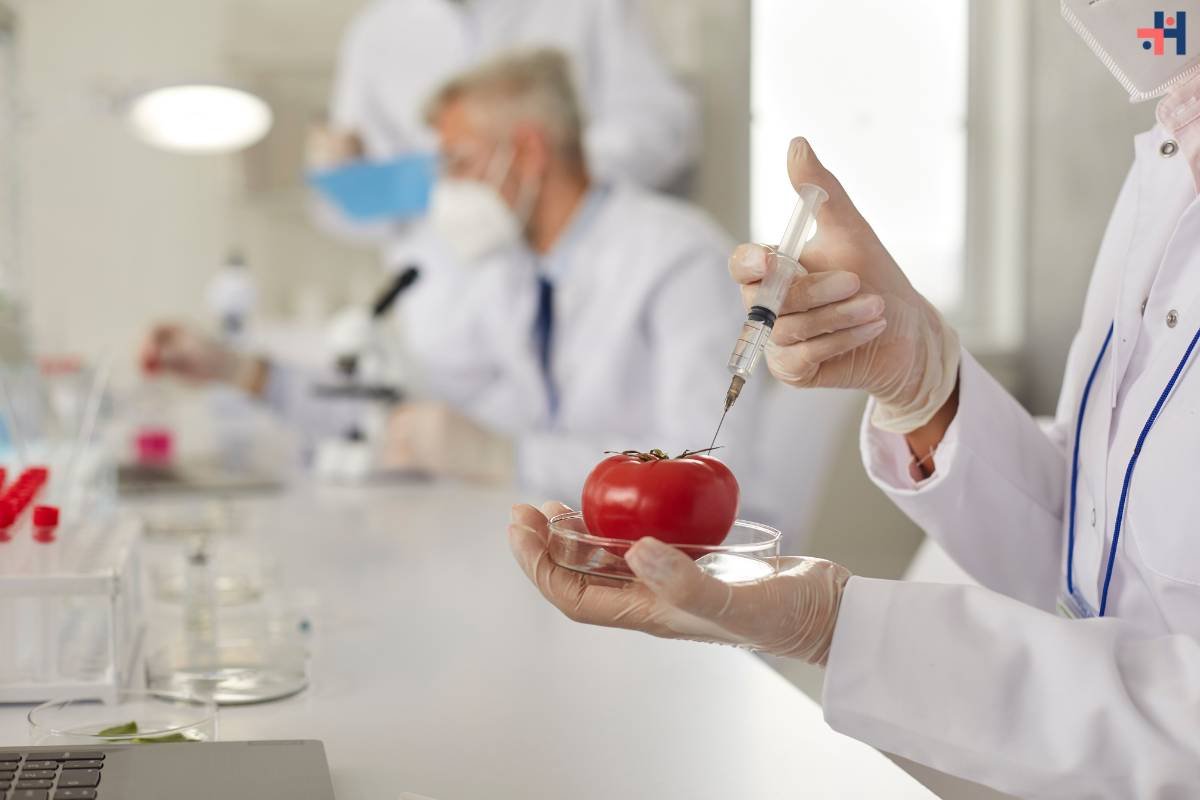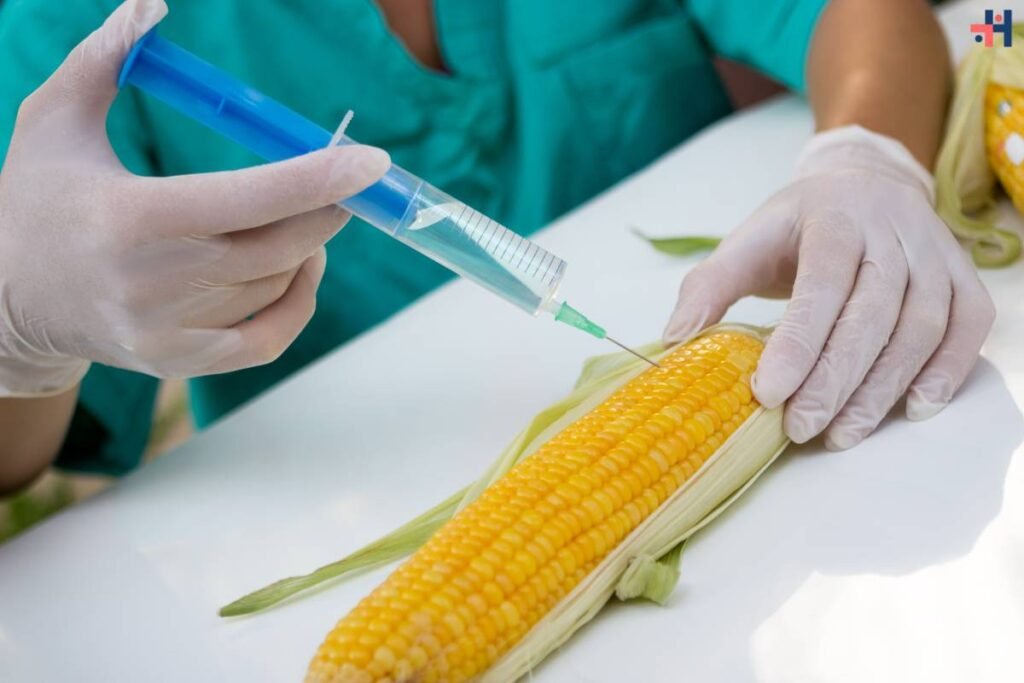Genetic engineering has emerged as a groundbreaking technology with the potential to revolutionize food production and address pressing global challenges. By introducing specific genetic traits into crops, scientists can enhance their resistance to pests and diseases, increase yield potential, and improve nutritional content. However, the widespread adoption of genetically engineered (GE) crops has sparked debates surrounding safety, environmental impact, and ethical considerations. In this comprehensive analysis, we delve into the multifaceted landscape of food genetic engineering, exploring its benefits, risks, regulatory frameworks, and ethical dimensions.
Benefits of Food Genetic Engineering:
- Enhanced Crop Resilience: Genetic engineering enables the development of crops with increased tolerance to environmental stressors such as drought, salinity, and temperature extremes. By introducing genes associated with stress response pathways, scientists can bolster crop resilience and mitigate yield losses caused by climate change-induced challenges.
- Pest and Disease Resistance: One of the most significant benefits of genetic engineering is the creation of crops resistant to pests and pathogens. Through the incorporation of genes from naturally pest-resistant organisms, such as Bacillus thuringiensis (Bt) bacteria, crops can defend themselves against insect herbivores without the need for chemical pesticides, thus reducing environmental contamination and minimizing health risks for farmers and consumers.

- Nutritional Enhancement: Genetic engineering offers a promising avenue for improving the nutritional quality of staple crops. By introducing genes responsible for the biosynthesis of essential vitamins, minerals, and other micronutrients, scientists can fortify crops with enhanced nutritional content, addressing widespread nutrient deficiencies and improving public health outcomes.
- Reduction of Food Waste: Genetic engineering can contribute to the reduction of food waste by enhancing the post-harvest characteristics of crops. For example, the development of genetically modified (GM) fruits and vegetables with extended shelf life and improved resistance to spoilage can help minimize losses during storage, transportation, and distribution, thereby enhancing food security and sustainability.
- Sustainable Agriculture Practices: Through the cultivation of genetically engineered crops with reduced resource requirements, such as water-efficient varieties or nitrogen-fixing legumes, farmers can adopt more sustainable agricultural practices. By conserving water, minimizing fertilizer use, and reducing greenhouse gas emissions, genetically engineered crops contribute to the promotion of environmental stewardship and conservation efforts.
Risks and Concerns Associated with Food Genetic Engineering:

- Potential Health Impacts: Despite the widespread regulatory approval of genetically engineered foods, concerns persist regarding their potential health impacts. Critics argue that genetic modifications may introduce allergens, toxins, or other unintended consequences into the food supply chain, posing risks to human health. While scientific consensus generally supports the safety of approved GE crops, ongoing research and monitoring are essential to identify and address any emerging health concerns.
- Environmental Risks: The cultivation of genetically engineered crops raises environmental concerns related to biodiversity loss, ecosystem disruption, and the development of herbicide-resistant weeds. Critics warn that the widespread adoption of herbicide-tolerant GE crops, coupled with intensive herbicide use, could lead to ecological imbalances and the emergence of superweeds resistant to multiple herbicides, exacerbating weed management challenges and threatening agricultural sustainability.
- Socioeconomic Implications: The adoption of genetically engineered seeds and associated technologies may exacerbate socioeconomic disparities and farmer dependence on agrochemical companies. Critics argue that the high upfront costs of genetically engineered seeds, coupled with intellectual property rights issues and restrictive licensing agreements, disproportionately impact small-scale farmers in developing countries, limiting their access to benefits and perpetuating cycles of debt and dependency.
- Ethical Considerations: The ethical dimensions of food genetic engineering encompass a range of complex issues, including transparency, consent, and equity. Critics raise concerns about the right to know and choose what foods to consume, the equitable distribution of benefits and risks, and the moral responsibility to safeguard human health, environmental integrity, and social justice. Ethical dilemmas also arise in the context of genetic patenting, corporate control over seed markets, and the commodification of life forms.
Regulatory Frameworks and Labeling Requirements:

The regulation of genetically engineered foods varies widely across countries and regions, reflecting diverse political, cultural, and socioeconomic contexts. While some jurisdictions, such as the European Union, have implemented precautionary approaches and mandatory labeling requirements for GE products, others, such as the United States, rely on voluntary labeling initiatives and industry self-regulation. Key regulatory considerations include risk assessment, product safety, environmental impact assessment, labeling transparency, public engagement, and stakeholder consultation.
Conclusion:
Food genetic engineering represents a powerful tool for addressing global food security challenges and advancing agricultural sustainability. However, its widespread adoption raises complex and multifaceted issues that require careful consideration and proactive management. By fostering interdisciplinary dialogue, evidence-based policymaking, and inclusive stakeholder engagement, we can navigate the complexities of food genetic engineering and harness its potential to create a more resilient, equitable, and sustainable food system for future generations. As society continues to grapple with the opportunities and challenges of this transformative technology, ethical reflection, regulatory oversight, and public trust will be essential to ensure its responsible and sustainable deployment in pursuit of shared societal goals.










